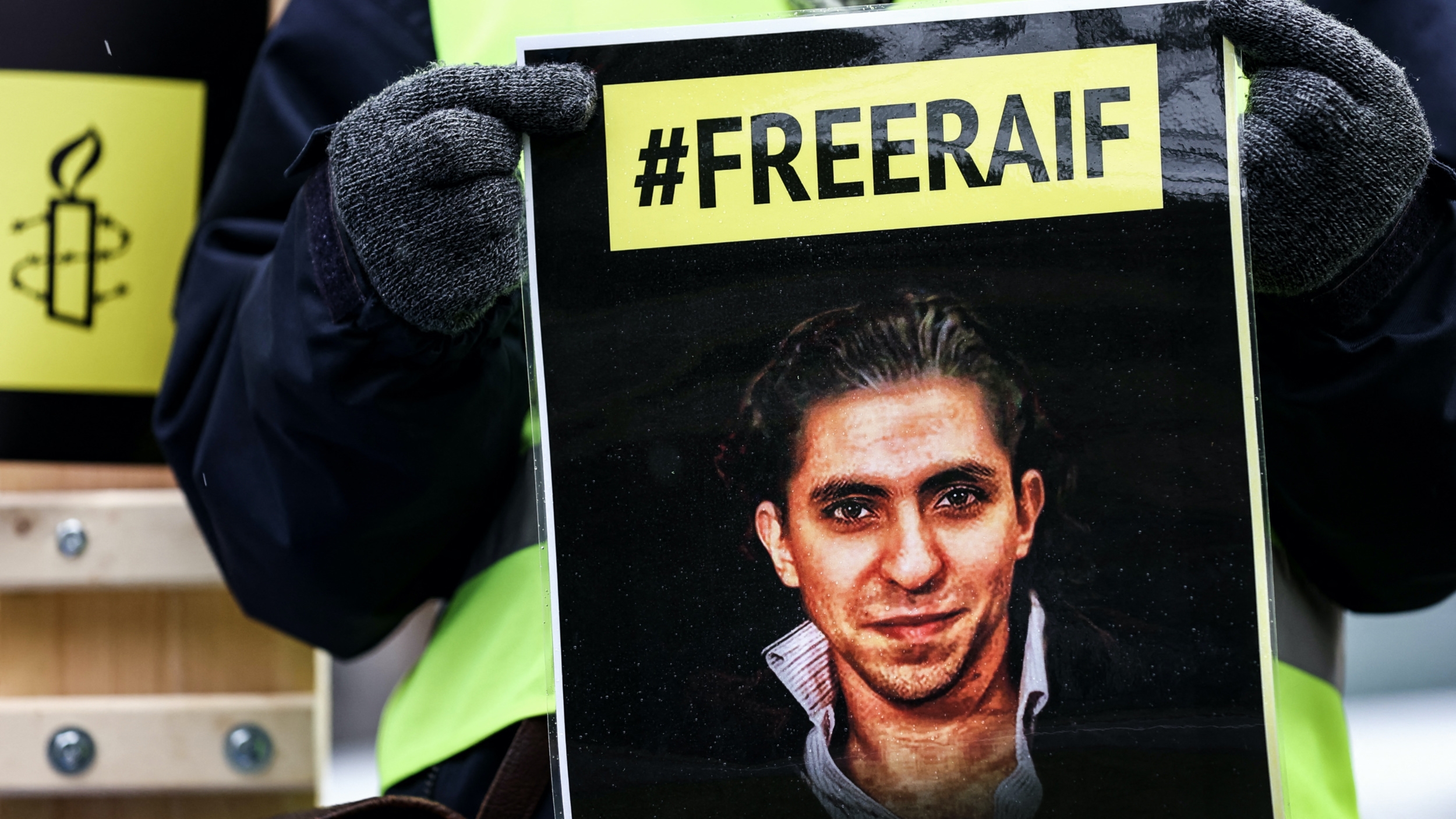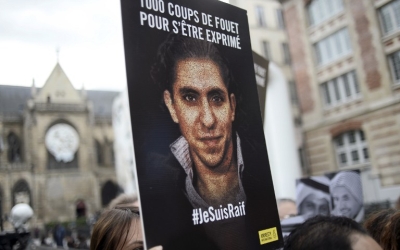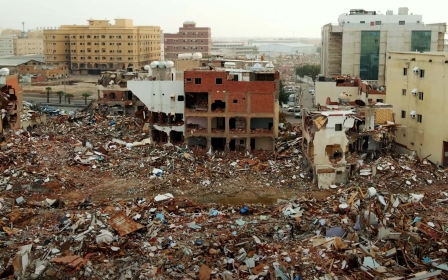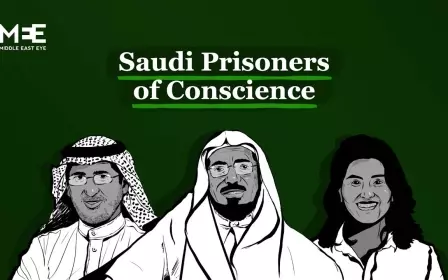Saudi Arabia confirms 10-year travel ban for freed blogger Raif Badawi

Saudi Arabia confirmed on Saturday a 10-year travel ban for blogger and human rights activist Raif Badawi, a day after he was released from prison.
"The sentence handed down to Raif was 10 years in prison followed by a travel ban for the same length of time. The court ruling holds up and is final," an interior ministry official, who spoke on condition of anonymity, told AFP.
New MEE newsletter: Jerusalem Dispatch
Sign up to get the latest insights and analysis on Israel-Palestine, alongside Turkey Unpacked and other MEE newsletters
"Therefore, he cannot leave the kingdom for another 10 years unless a [royal] pardon is issued," the official said.
Badawi, now 38, was arrested and detained in Saudi Arabia in 2012 on charges of "insulting Islam".
Prior to his arrest, he was running the website "Free Saudi Liberals," which called for freedom of expression and encouraged a debate on human rights and religious issues in the Gulf Kingdom.
At the end of 2014, he was sentenced to 10 years in prison, a hefty fine, a travel ban, and 1,000 public lashes to be meted out over a period of 20 consecutive weeks.
His first flogging in a Jeddah square shocked the world and was described by the United Nations as "cruel and inhuman". After the outcry, he was not lashed again.
On Friday, Badawi's wife, Ensaf Haidar, who lives in Canada with their three children, announced on Twitter that her husband was freed.
The news was later confirmed by a Saudi security official, but details of Badawi's release were not revealed.
Last week, Amnesty International called for his release, saying his prison sentence amounted to "arbitrary detention".
On Friday, the international group said it would "actively work to have any conditions lifted," noting that Badawi could face a 10-year travel ban.
Raif Badawi's sister, Samar Badawi, as well as activist Nassima al-Sadah, released in 2021, also remain stranded in the kingdom.
Canada's Quebec province has paved the way for Badawi to come to the country if he chooses by placing him on a priority list of potential immigrants for humanitarian reasons.
Middle East Eye delivers independent and unrivalled coverage and analysis of the Middle East, North Africa and beyond. To learn more about republishing this content and the associated fees, please fill out this form. More about MEE can be found here.





